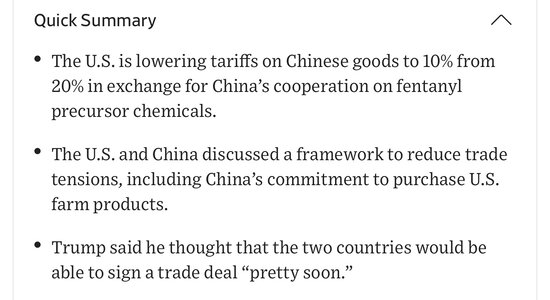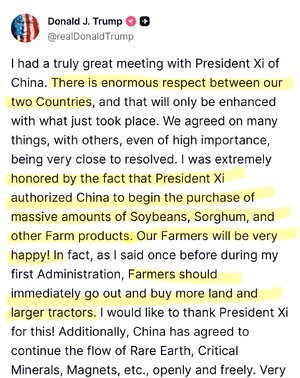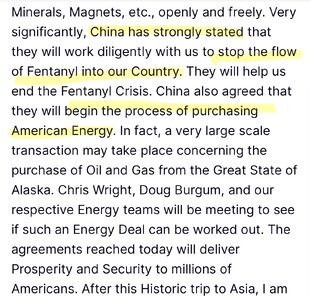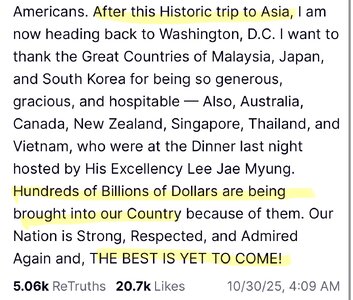- Messages
- 41,551
“… While the detente provides relief to both sides, it does little to address the fundamental divergence between two superpowers whose economies are decoupling in many sectors and who are racing for supremacy in areas such as artificial intelligence.Trump Meets With Xi, Declares Immediate Cut to Tariffs
U.S.-China summit offers relief to both sides while high-stakes rivalry carries on
—> https://www.wsj.com/world/china/tru...f?st=HckgkC&reflink=desktopwebshare_permalink

In comments to reporters on his way back to the U.S. from South Korea, Trump was effusive about the meeting.
“Overall, I guess on the scale of from zero to 10, with 10 being the best, I would say the meeting was a 12,” he said.
The actual numbers the two agreed on were more modest. The U.S. is cutting tariffs on China by 10%, Trump said, in exchange for a promise by China to take “very strong action” on chemicals used to produce fentanyl. After the reduction, U.S. tariffs on Chinese imports will be 47%, said Trump.
China promised to ease some of the controls it imposed on exports of processed rare-earth minerals for one year. It dominates the production of the minerals, which are needed to make everything from smartphones to submarines. Its restrictions this year on rare-earth exports have badly hurt U.S. businesses.
In addition, China agreed to buy large amounts of U.S. soybeans, according to Trump. China already ordered several soybean cargoes from U.S. grain handlers earlier this week, offering relief to American farmers who have been in a panic this harvest season as trade tensions sent Chinese buyers elsewhere to source the crop.
The drop in Chinese purchases hit Trump’s rural political base hard. U.S. soybean farmers have called on the administration for help as they dealt with billions of dollars in lost sales to the world’s largest soybean importer. China placed orders for soybean shipments shortly before Thursday’s meeting.
… The U.S. also agreed to put on hold for one year a September move to apply export restrictions to certain subsidiaries of already blacklisted entities, the Chinese Commerce Ministry said. And both sides placed a one-year pause on reciprocal port fees on each other’s vessels, which comes on the heels of South Korea agreeing to invest $150 billion in American shipbuilding.…”




